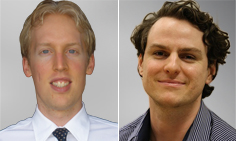AUSTRALIA should be supporting young doctors who have skills in biomedical innovation and entrepreneurship, both to improve our health systems and to drive Australia’s transition from a resource-based economy.
These sentiments were expounded in the recent Boyer Lecture delivered by Professor Suzanne Cory, one of Australia’s most distinguished molecular biologists.
Professor Cory outlined the significant role Australian scientists had played in the development of landmark biomedical technological advances, including the Cochlear implant and the human papilloma virus vaccine, determining telomere function and instigating BRCA genetic testing.
Our junior doctors who have knowledge across frontier sciences such as genomics are well positioned to be at the forefront of Australia’s transition to a biomedical innovation economy.
In recent years, major Australian organisations have called for the development of research, innovation and entrepreneurship skills among junior doctors. An example is the 2013 Department of Health and Ageing’s McKeon Strategic Review of Health and Medical Research, which encouraged the embedding of research and innovation in the health system. The review promoted strategies such as the development of integrated health research centres, inclusion of research objectives in the key performance indicators for local hospital networks, enhancement of health service innovation research, and support for the commercialisation of research through increased funding and internship programs.
Recognition of the doctor’s role in innovation and entrepreneurship has led to the development of the Society of Physician Entrepreneurs (SoPE) — an international network to help doctors and other health professionals innovate in health care. SoPE has been involved in the development of a Society for International Bioentrepreneurship Education and Research.
It has also launched the Innovation Scholar Program aimed at offering doctors hands-on bio-entrepreneurship experience through practicums with biomedical companies. The program offers a 1-year apprenticeship-type model where the junior physician is linked to a biomedical company, a mentor, a university curriculum and a project.
In Australia, the Medical Service Improvement Program is open to resident medical officers and registrars who want to make a difference to the day-to-day running of WA Health. It involves 3 months’ work on a specific quality improvement project with supervision and mentorship throughout, as well as lectures and visits to non-health industry locations.
This program was featured on an episode of ABC Radio National’s Health Report, where junior doctor Richard Taylor spoke of his project to enhance the time efficiency of the trauma theatres at Royal Perth Hospital. Dr Taylor’s project dissected the many variables affecting efficiency, finding that lack of communication between theatre and ward staff was a major contributor.
After instituting some simple interventions and standard operating procedures, in 10 weeks, Dr Taylor was able to substantially improve the start time of the theatres in the morning (from 34% starting on time, to 61%) and the theatre turnaround time.
If Australia wants to “punch above its weight” in research and innovation, we must seriously consider this kind of increased investment in junior doctors.
However, the recent federal Budget cuts to scientific research, including leading organisations such as the CSIRO, Australian Research Council and others, have fuelled uncertainty. Although the government has announced plans for a Medical Research Future Fund, it will be many years before it will be operating.
Australia’s future as a leader in health innovation cannot be realised without investment. Junior doctors who want to make their contribution to innovation and entrepreneurship need robust mentorship structures, workplace experience, and a network of well funded research facilities.
It is essential that the Australian Government continues to invest in our future medical research workforce.
Dr Harris Eyre is currently studying as a Fulbright Scholar at the University of California, Los Angeles. He is a psychiatry registrar and undertaking a PhD through the University of Adelaide. His aim is to establish collaborations between the US and Australia. Dr Malcolm Forbes is a medical registrar and NHMRC postgraduate scholar currently undertaking public health research at the Cairns Institute.

 more_vert
more_vert